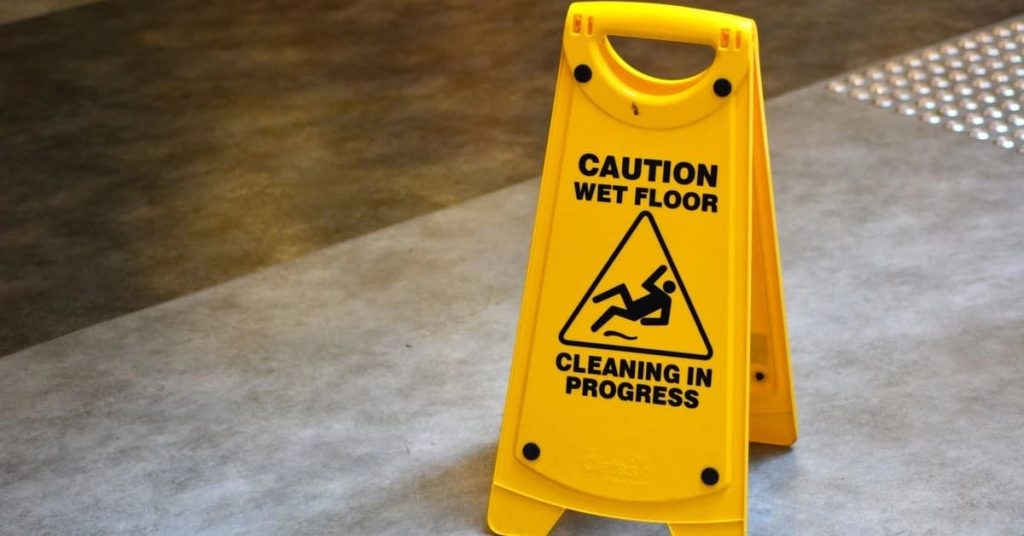Occupiers’ liability is a legal concept that holds
property owners responsible for injuries and accidents that occur on their premises. In many jurisdictions, including Western Australia (WA) and New South Wales (NSW), specific laws known as the Occupiers Liability Act outline the duties and responsibilities of property owners. This article aims to provide a detailed understanding of occupiers’ liability, the Occupiers Liability Act, its implications in WA and NSW, and the importance of occupiers’ liability insurance.
What is Occupiers’ Liability?
Occupiers’ liability refers to the legal duty of property owners to ensure the safety of individuals who enter their premises. The duty of care extends to both invited guests and those who enter the property without explicit permission. Property owners have a legal obligation to take reasonable steps to prevent harm to visitors and warn them of potential hazards. Failure to fulfill this duty can result in legal liability and potential compensation claims.
Exploring the Occupiers Liability Act:
An Overview
The Occupiers Liability Act is a specific legislation that governs occupiers’ liability and sets out the legal framework for property owners’ responsibilities. The Act outlines key provisions, including the definition of an occupier, the duty of care owed to visitors, and the concept of foreseeability. Property owners must understand these provisions to fulfill their obligations and protect themselves from liability.
Understanding the Duty of Care Imposed on Occupiers
Under the Occupiers Liability Act, property owners have a duty of care to ensure the safety of visitors. This duty includes maintaining the premises in a reasonably safe condition, regularly inspecting for hazards, and taking necessary precautions to prevent accidents. The standard of care expected from occupiers may vary depending on the circumstances and the type of visitor involved.
Identifying the Scope of Liability under the Act
The Occupiers Liability Act defines the scope of liability for property owners. It distinguishes between different categories of visitors, such as invitees, licensees, and trespassers, and establishes varying levels of care owed to each category. Property owners must understand these distinctions to determine their liability in specific situations. The Act also outlines situations where liability may be limited or excluded, such as when visitors engage in inherently risky activities.
Occupiers Liability Acts in WA and NSW
In both Western Australia (WA) and New South Wales (NSW), occupiers’ liability is governed by specific legislation known as the Occupiers Liability Act. In WA, the Occupiers Liability Act WA establishes reporting obligations for accidents, statutory defenses for occupiers, and potential liability for contractors. Similarly, in NSW, the Occupiers Liability Act NSW outlines legal obligations, including the duty of care owed to visitors, liability for accidents, and available defenses. Familiarizing yourself with these Acts is crucial for property owners in WA and NSW to ensure compliance and protect against legal consequences.
Management Liability insurance is designed to provide protection to both the business and its directors or officers for claims of wrongful acts in the management of the business.
A business insurance pack can provide cover for your business premises and contents, against loss, damage, theft or financial loss from an insured interruption to the business.
Purchase up to six products under one Business Insurance Package.
In both Western Australia (WA) and New South Wales (NSW), occupiers’ liability is governed by specific legislation known as the Occupiers Liability Act. In WA, the Occupiers Liability Act WA establishes reporting obligations for accidents, statutory defenses for occupiers, and potential liability for contractors. Similarly, in NSW, the Occupiers Liability Act NSW outlines legal obligations, including the duty of care owed to visitors, liability for accidents, and available defenses. Familiarizing yourself with these Acts is crucial for property owners in WA and NSW to ensure compliance and protect against legal consequences.
Common Scenarios and Examples of Occupiers’ Liability Cases
Occupiers’ liability cases can arise in various scenarios. Slip and fall accidents on commercial premises, injuries on residential properties, and accidents in public spaces are common examples. Property owners must take reasonable steps to address potential hazards, such as maintaining proper lighting, repairing uneven surfaces, and providing clear warnings. Understanding these scenarios and implementing necessary safety measures can help property owners mitigate liability risks.
Steps to Mitigate Occupiers’ Liability Risks
To minimize occupiers’ liability risks, property owners can take proactive steps. Ensuring proper maintenance and upkeep of the premises is crucial. Regular inspections, repairs, and addressing potential hazards promptly can help prevent accidents. Implementing safety protocols and procedures, such as providing adequate signage, training staff on safety measures, and conducting risk assessments, can also contribute to a safer environment.
Occupiers’ Liability Insurance: Protecting Against Liability Claims
One crucial aspect of managing occupiers’ liability risks is obtaining occupiers’ liability insurance. This type of insurance provides coverage for property owners in the event of liability claims arising from accidents or injuries on their premises. Occupiers’ liability insurance can protect property owners from financial loss by covering legal expenses, compensation costs, and settlement amounts.
By having occupiers’ liability insurance in place, property owners can have peace of mind knowing that they have financial protection against potential claims. It is essential to review the coverage details and policy terms to ensure that the insurance adequately addresses the specific risks and requirements of the property.
* WHAT IS THE DIFFERENCE BETWEEN OCCUPIERS’ LIABILITY AND PUBLIC LIABILITY INSURANCE?
Occupiers liability insurance and public liability insurance are both types of insurance that protect businesses from legal liability for injuries or damage caused to visitors. However, there are some key differences between the two types of insurance.
Occupiers’ liability insurance covers injuries or damage caused to visitors on the insured’s premises. Public liability insurance covers injuries or damage caused to visitors anywhere the insured is doing business. This could include events, trade shows, or even just walking down the street.
Occupiers’ liability insurance typically has a higher level of coverage than public liability insurance. This is because the insured is responsible for the safety of visitors on their premises, while the insured is only responsible for the safety of visitors while they are doing business.
Occupiers’ liability insurance is typically required by law for businesses that operate premises where there is a risk of injury, such as schools, hospitals, and care homes. Public liability insurance is not typically required by law, but it is a good idea for all businesses to have it.
Why Choose Insurance HQ?
When it comes to protecting yourself against potential occupiers’ liability claims, having the right insurance coverage is paramount. Insurance HQ is here to help you find the perfect occupiers’ liability insurance policy that suits your specific needs.
Our team of experienced insurance professionals understands the intricacies of occupiers’ liability and can provide expert guidance to ensure you have the right coverage in place. We work with leading insurance providers to offer comprehensive and tailored insurance solutions for property owners.
Don’t leave yourself exposed to the financial risks associated with occupiers’ liability claims. Contact
Insurance HQ today at
1300 815 344 or fill out the form to
get a FREE quote. We can assist you in obtaining the right occupiers’ liability insurance for your property.







